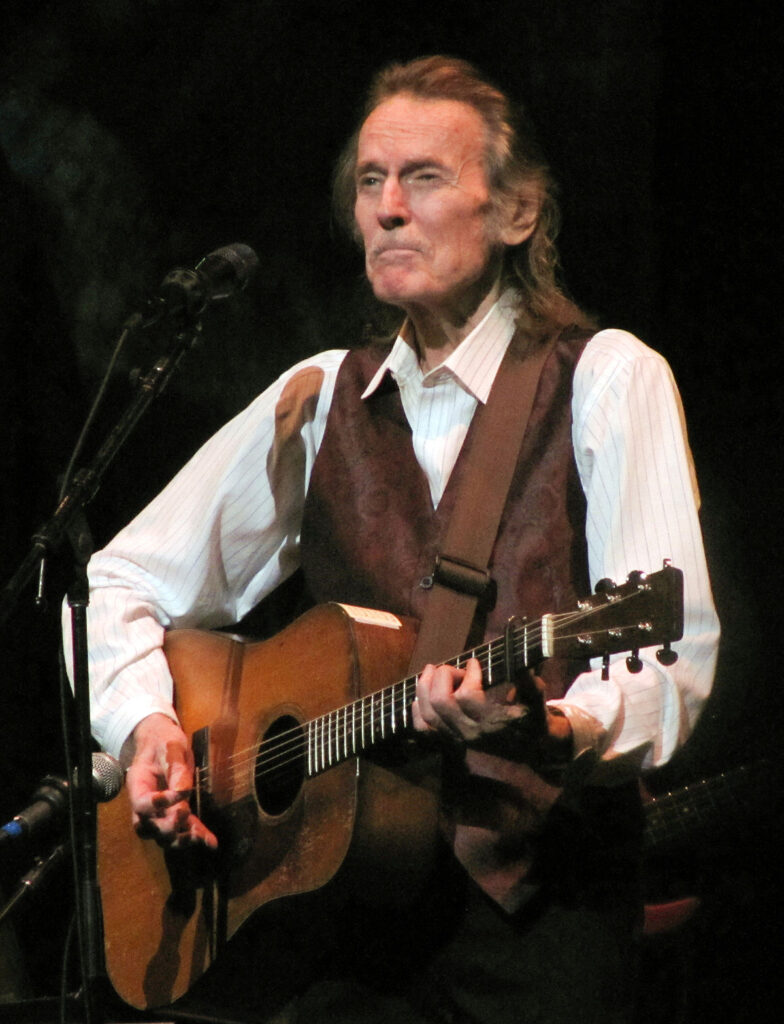By Helen Harper

Gordon Meredith Lightfoot Jr. was born in Orillia, Ont. in 1938. This “Canadian National Treasure” is credited with helping define the folk-pop sound of the 1960s and 1970s.
His mother recognized his talent early, and his first performance was in the fourth-grade singing Too Ra Loo Ra Loo Ra through the public address system of his school. He went on to sing with a local church choir and performing through high school. He was an accomplished athlete earning himself a bursary to McGill School of Music. From there, he went to Hollywood’s Westlake College of Music but missed Canada and returned home by 1960.
Some of his early songs include Early Morning Rain, Ribbon of Darkness, If you could Read My Mind? and, of course, the Wreck of the Edmond Fitzgerald. His songs have been recorded by many of the great artists of our time.
For a time, he was better known as a songwriter than a performer. Still, on the strength of the “Lightfoot” album in 1966, which blended Canadian and universal themes, Lightfoot became one of the first Canadian singers to achieve definite home-grown stardom without having to move permanently to the USA to develop it.
In 1963 he traveled in Europe and the United Kingdom, hosting a BBC Country and Western Show for a year.
He has survived a couple of serious illnesses, the worst being an abdominal aortic aneurysm in 2002.
Lightfoot has been married three times and has six children. He has been writing songs and performing for the past five decades.
His biographer, Nicholas Jennings, sums up his legacy this way: “His name is synonymous with timeless songs about trains, and shipwrecks, rivers and highway, lovers and loneliness. He is unquestionably Canada’s greatest songwriter.”

